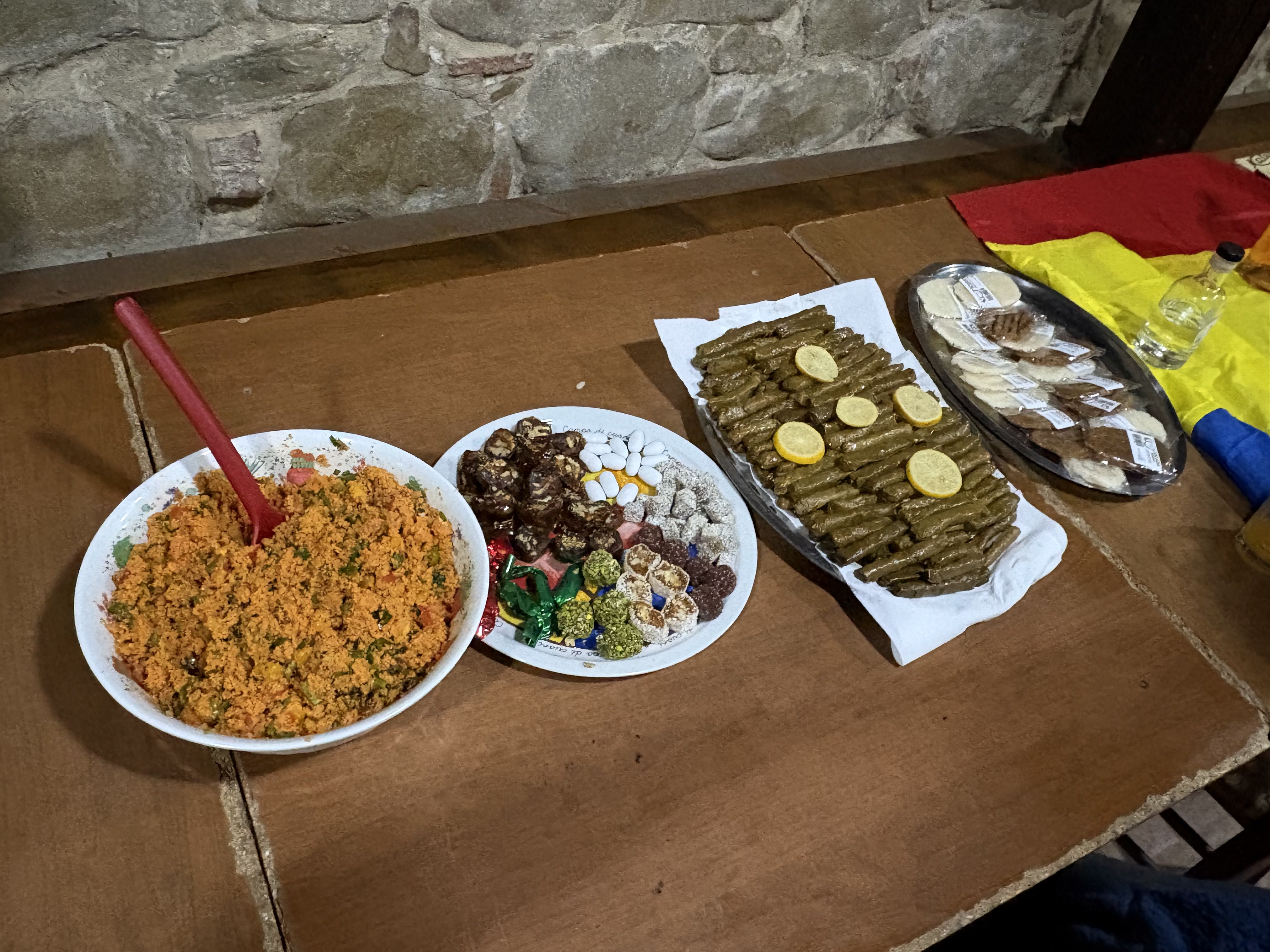My Experience at the KA153 Training Course
My Experience at the KA153 Training Course
Ready to Start: Training Course for Youth Workers
From 6th to 14th October 2024, I had the incredible opportunity to participate in the KA153 Training Course, “Ready to Start,” organized by I CARE. This event took place at the beautiful Ostello San Donato in Moiano, Italy.
About the Project
The training course aimed to equip youth workers with the necessary skills to facilitate groups within the Erasmus+ program. The objectives included training youth workers, sharing methods and techniques, strengthening partner networks, and organizing workshops in local communities.
The Venue
The venue, Ostello San Donato, provided a serene and picturesque environment, perfect for learning and reflection. Nestled in the countryside near Città della Pieve, the hostel offered comfortable accommodations and a variety of amenities, including a large green area, a covered veranda, and recreational facilities.
Daily Activities
Each day was planned to achieve specific goals using non-formal educational methods. Activities included practical experiences, theoretical explorations, and critical reflections, all designed to develop our skills as group facilitators.
Cultural Exchange

One of the highlights was the cultural exchange evening, where participants shared elements of their cultures, including traditional foods, music, and stories. This fostered a deeper understanding and appreciation of the diverse backgrounds of all participants.
Logistics and Travel
Travel to the venue was well-organized, with clear instructions provided for reaching Ostello San Donato from various airports. The strategic location allowed us to explore the local area and enjoy the rich cultural and culinary heritage of Umbria.
Conclusion
Participating in the KA153 Training Course was a transformative experience. It not only enhanced my skills as a youth worker but also allowed me to connect with like-minded individuals from different parts of Europe. The knowledge and experiences gained during this course will undoubtedly contribute to my future endeavors within the Erasmus+ program.
Culturepreneurs — A Project Proposal Created During the Training Course
Culturepreneurs: Global Minds, Local Impact
The project will promote entrepreneurial thinking that addresses social issues while encouraging cultural exchange and collaboration.
Cause/Issue
The need for fostering social entrepreneurship among young people from diverse cultural backgrounds.
- Many young people face barriers to becoming social entrepreneurs due to a lack of education, resources, or understanding of how to integrate social impact with business.
Aim of the Project
To empower young people from diverse cultures to develop social initiatives that leverage multiculturality to provide value to local communities.
- Promote intercultural dialogue: Encourage youth to learn from one another’s cultures and perspectives.
- Foster social entrepreneurship: Equip participants with the skills and mindset to create businesses with a social impact.
Identified Needs
- Participants: Lack of entrepreneurial education in youngsters, especially in terms of social entrepreneurship.
- Communities: Lack of local representation; underrepresented communities are facing existential crises related to local cultures.
- Bridging the gap between social and economic goals: Social enterprises can be a solution to community problems, but youth need support to develop these businesses.
Objectives
- Provide an overview of social entrepreneurship frameworks and business models with ethical leadership.
- Provide non-formal education that promotes the identification of cultural opportunities related to cultural awareness.
- Foster the development of small hands-on collaborative multicultural projects with local communities in the venue.
Target Groups
- Target Group: Mix of ages (16-30) and backgrounds. People interested in preserving local cultures and creating initiatives focused on social entrepreneurship.
Evaluation
- Measure the development of entrepreneurial skills, intercultural competence, and the social impact of proposed initiatives.
Dissemination
- Local and regional newspapers and TV channels.
- Invitation of key local stakeholders to be present.
- Social media campaigns.
- Questionnaires for participants.
Possible Venues
- Portugal: Interior Norte (Bragança, Vila Real (Gerês), Viseu) and Centro (Castelo Branco, Guarda), Alentejo (Évora, Beja)
- Estonia: Tartu (Europe’s Capital of Culture 2024), Saaremaa
Number of Participants
- 10 participants per country. Just two countries: Estonia and Portugal.
- 1 facilitator per group.
- 7 days in each country (total 2 weeks).